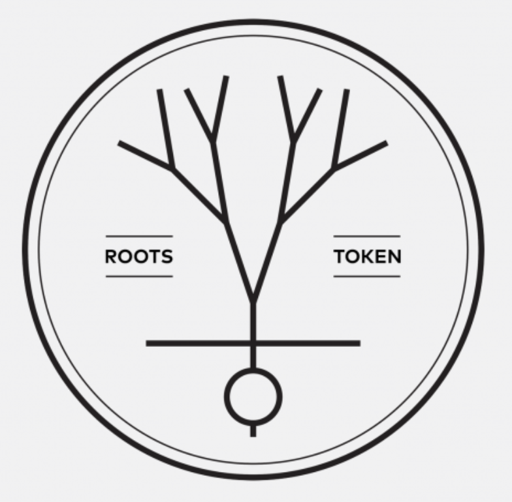Your Rating:
Our Rating:
Quick Summary
108 crypto investors read thisRootProject is a social entrepreneurship investment token.
Using the project’s Root currency, users crowdfund social projects the same way they would on Kickstarter or GoFundMe. Once a project reaches its goal, RootProject either steps in itself or hands the project off to a third-party partner organization to collect the money and actually complete the funded work. The goal is to eliminate the problem of funding for worthy projects people are otherwise unable to complete by providing on-the-ground skills.
It is a novel approach to community fundraising, but one with several problems as addressed below.
The central Root cryptocurrency is a utility token which the project hopes will help fund the venture and provide a model for helping to combat poverty.
The Problem and Solution
RootProject raises more questions than it answers.
This project attempts to solve the problem of well-intentioned social projects which ultimately fall short of completion. Common users of crowdfunding platforms have seen this happen several times. Someone will start a well-intentioned, possibly worthy, project. The project will receive funding, only to falter when the creator cannot actually follow through.
It leaves many worthwhile projects incomplete. RootProject’s model is to step in at the completion phase, providing the on-the-ground expertise necessary to turn these funded goals into action. Per the project’s business plan:
"Individuals and institutions can create crowdfunded projects. When the funding goal is met, RootProject or a partner nonprofit completes the project, sourcing labor from populations in need of job training. This new model is called "laborless crowdfunding" because it fundamentally expands supply beyond the traditional crowdfunding model wherein the campaign initiator herself has had to complete the work."
This “laborless crowdfunding” is the heart of RootProject’s innovation. Traditional crowdfunding requires that the project creator have the skills to both identify a need and enact a solution. RootProject separates those parts of the process by taking over the work once a project has raised the necessary capital.
This is, in and of itself, a worthy iteration of the crowdfunding model. It is like telling homeowners that they no longer need to be able to fix their own leaky faucet. Spotting the problem and calling a plumber is enough.
According to its website, RootProject anticipates sourcing the majority of its workforce for any given project “from those below the poverty line.” This is ostensibly modeled on a program from Albuquerque, New Mexico in which the city offers civic and beautification jobs to panhandlers. While not bad in and of itself, it is somewhat concerning if the project anticipates necessary cost savings in hiring only desperate workers.
Further, the project anticipates boosting the value of its Roots token by investing approximately one-third of all wages in a medium-term “pension fund” held in the cryptocurrency. (All workers will receive a minimum of $15 U.S. in local currency, with another 50 percent placed in this fund.) Workers will receive these funds only “provided they meet conditions designed to help them leave the streets.”
It is a novel approach to using cryptocurrency to evolve crowdfunding and help find work for people in need, yet there is also a concerningly high-handed and patronizing approach to how the project approaches its intended labor force.
It is also troubling to note that of the project’s 34-page business plan, almost no discussion whatsoever is given to the mechanics of how RootProject will enact its on-the-ground work.
While the organization has posted extensive discussions about its token and technological platform, the truth is that RootProject ultimately aims to build a physical services firm. Their true innovation is the promise that if you, a project creator, can find funding for a worthy social goal, they will make sure that project gets built. The Roots token is simply a payment model layered on top of that.
Doing this will require physical infrastructure and human capital. Creating project teams is a substantial task, made more difficult by RootProject’s intended model of using low-skill (or at least unproven) labor. Whether it is something as simple as cleaning a city street or as complex as building a brand new playground, RootProject will need tools, personnel, working space, and more. There is absolutely no discussion of how the project will execute on this ambitious business model, nor of how it intends to build a network of partnerships with existing nonprofits who have that capacity.
This is an issue fundamental to RootProject’s proposed business model and it remains almost entirely unaddressed at time of writing.
The Team
RootProject is cofounded by Chris Place and Nicholas Judge.

Place is the co-founder of Prepd, an academic-oriented platform which helps debate teams research and prepare for competition. While Prepd’s website does not mention Place, instead listing an Ian Panchevre as the founder, Buzzfile does have Place listed as the contact of record.

Nicholas Judge is a political economist with a degree from the University of Wisconsin. Judge founded a previous startup in 2016 called WanderPlus which does not appear to be in operation any longer. He also spent a brief period working as a computer programmer.
Both founders of this project have worked in the technology entrepreneurship space before, and both have a track record of stability. Yet neither Place nor Judge, nor anyone else listed on the RootProject website, has any experience actually operating nonprofits. The closest the project has is its Chief of Staff, Jason Koman, who claims experience working with the Clinton Climate Initiative.
This is a major oversight. It does not suggest that RootProject is a scam or that it will be deliberately careless with investors’ money. However, the project’s team and advisors are almost exclusively drawn from technology and blockchain backgrounds, which raises substantial concerns given that the actual operations of RootProject will focus on nonprofit engagement and on-the-ground delivery.
The Token
The RootProject token is Roots, an Ethereum-based token. It will function as the funding model for the project overall, a fundraising model for individual projects and a part of the payment system for workers.
The Roots supply has been hard capped. It will never increase and the project intends to periodically burn off tokens as necessary to maintain their value. Token value will also be maintained through three specific channels:
- Ten percent of the donations for every project will be used to purchase Roots on the open marketplace in order to sustain their value.
- A further portion of each donation will be used to purchase Roots on the open market for the worker “pension fund.” (See above.)
- Periodic donations from institutional donors, a portion of which will be used to purchase and burn Roots tokens.
The goal is to create a token with ever-increasing value so that it can be used as an effective means of financing both RootProject and the pension funds.
RootProject will also use a small portion of its tokens as incentives for system participants. This will include nonprofit partners, economic researchers, and specific project creators, all of whom can receive Roots tokens for contributing to or participating in the overall system. The token is also the only section in which RootProject discusses how it will integrate its digital platform with physical services, as system participants can earn incentive tokens if they flag local conditions that RootProject should know about a specific project.
Roots will be available on the open marketplace for purchase, and RootProject will cycle them through the central project by purchasing the tokens and then pushing them back down through these channels.
The Community
RootProject has three main outreach branches. Its Twitter account is updated somewhat regularly, with posts appearing approximately every few days. The same is true of the project’s Facebook page. Both outlets are used to publish announcements on RootProject developments as well as links to more thorough publications.
Judge’s Medium page is RootProject’s official blog. It is updated less regularly than either the project’s Twitter or Facebook accounts, with posts appearing multiple times per month.
Next Steps
RootProject’s ICO will begin on April 10, 2018. Per the project’s business plan, RootProject will hold an ICO on April 10 - 13, 2018, selling 18.5 percent of the total supply to sale participants. It will last for a period of 14 days or until 1.85 billion ROOTS are sold.
Buyers can purchase Roots tokens with ethereum. One dollar’s worth of ethereum will purchase 88.5 Roots tokens. Readers interested in learning more can sign up for the ICO’s whitelist here.
RootProject has also announced a SAFT round, its second. Interested readers can find out more on participating in this pre-sale on the project’s blog here. There is no official word on when this will close.
Raised Amount Unreported: contact us to update this information
How to Invest
Please Read How to Invest in ICOs
Then see RootProject Investment Instructions



